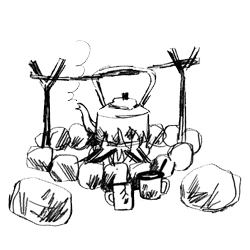The questioning over state funding of Free and Open Source Software (FOSS) and open-source initiatives revolves around invisible ideological debates about benefits and drawbacks. Let’s look at this from a few specific examples: #NLnet, #NGI, and the European Union (#EU), to understanding the implications and effectiveness of this funding path.
- The #NLnet Foundation is a notable example of an organization that provides funding to open-source projects. Supported by private and public funds, including significant contributions from the #EU, NLnet focuses on promoting a free, open, and secure internet.
- The #NGI initiative, funded by the #EU, aims to shape the development of the internet of tomorrow. By supporting a range of open-source projects, NGI tries to foster innovation, privacy, and security. It emphasizes human-concentric technology, ensuring that the future internet respects humanistic values and needs.
- The #EU has been a significant proponent of FOSS, providing funding through programs such as Horizon 2020 and Horizon Europe. The EU’s supports digital sovereignty, reduce dependency on non-European technologies through promoting open standards.
The is some democratization as these state-funded FOSS projects ensure software is accessible to wider groups, thus reducing the digital divide. For instance, NGI-funded projects are supposed to focus on inclusivity and user empowerment. At best, this transparency brings public overview to these processes.
There are some economic benefits and cost savings in using and supporting FOSS instead of expensive proprietary software. Funding initiatives like NGI stimulate innovation by allowing developers to build upon existing open-source projects, fostering a collaborative environment. Though, there are unspoken issues of sustainability in a pure capitalist path, thus the question of balance in state funding.
Open-source software allows for independent security audits, reducing the risk of vulnerabilities. The EU’s investment in secure communication tools underlines this advantage. Reducing reliance on a few large proprietaries #dotcons software vendors enhances national security and control. The EU’s support for open-source projects aims to bolster humanistic digital sovereignty.
For example, #NLnet’s diverse (though #geekproblem) funding portfolio highlights this limited community-driven development. The collaboration between public institutions, the private sector, and community contributors helps #NGI projects bring together diverse stakeholders to work on common goals. #FOSS projects thrive on community contributions, leading to continuous improvement and support and thus in theory community needs, though due to the dogmatic #geekproblem this is currently failing.
Funding Continuity: Projects become dependent on government funding, which currently is not stable or continuous. For example, sudden policy shifts in the EU affect long-term project sustainability. Without a sustainable funding, FOSS projects struggle with long-term maintenance and support.
Most #FOSS projects are too idiosyncratic to meet quality #UX standards. Thus, the current #geekproblem dominated process means that state funding inadvertently support meany unusable and thus pointless, subpar projects. Effective diversity and oversight of these mechanisms are crucial to mitigate this failing path.
Government involvement leads to bureaucracy, slowing down and ossifying development cycles, currently we do not work though this path well, The balance between oversight, diversity and agility is critical. With the #EU path this is a huge problem leading to almost all the current funding bring poured down the drain.
For #mainstreaming capitalism the issue of “Market Distortion”, the idea of competition raises the issue of state funding distorting “market” dogmas to disadvantage private companies and startups that don’t receive government support. For instance, EU funding can overshadow smaller #dotcons, capitalist thinking sees this as a risk that government-backed projects might stifle innovation by shaping the market landscape.
Political and ideological biases influence which projects receive funding, this is currently pushing a #blocking of the needed “native” #openweb path. How to move past this to ensuring diversity and “impartiality” in funding decisions need real work. How can we shift this “common sense” focus that government priorities do not align with the wider needs of the #openweb community and end-users. Aligning funding priorities with community needs is needed to address this concern, how can we make this happen with funding like #NLnet and #NGI?
To sum up, #NLnet are doing some good work, but this is focused on feeding the #geekproblem and building #fashionista careers, evern then on balance they do a better job than most. Then the wider #NGI funding is going into the #dotcons and #NGO mess, thus being poured directly down the drain. Over all, it’s fantastic that the #EU is funding the #openweb even if it is doing it very badly by funding very little that is native or useful.
Conclusion, state funding for FOSS and open-source initiatives, in our examples #NLnet, #NGI, and the #EU, has potential for creating real change and challenge, but this path presents both opportunities and challenges. When implemented thoughtfully, it can foster “native” paths, innovation, reduce costs, and enhance community and security to challenge the current worshipping of the #deathcults by our widespread use of the #dotcons. The question is the will and understanding to balancing this path to ensures that state funding positively contributes to the #4opens FOSS ecosystem, driving forward a free, open digital future or just leads to the capitalistic criticism of waste and distortion? At best and at worst, we see some real change and a lot of poring funding down the drain to feed some #geekproblem and build the careers of a few #fashernistas
The is much to compost in the current mess, can we get funding for shovels please #OMN


